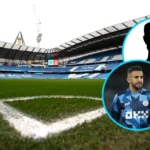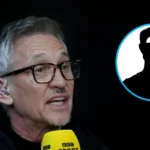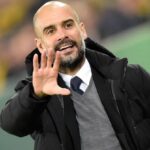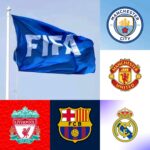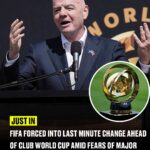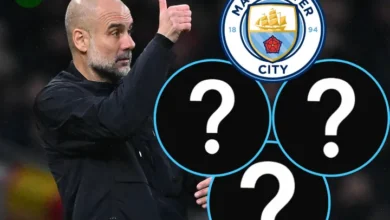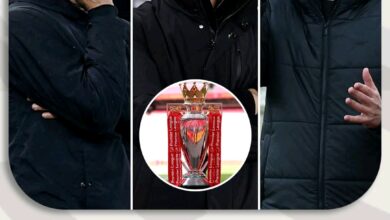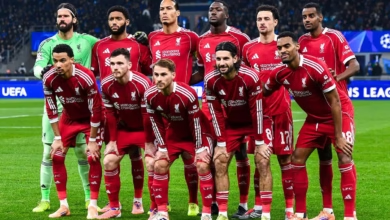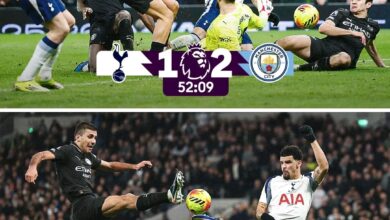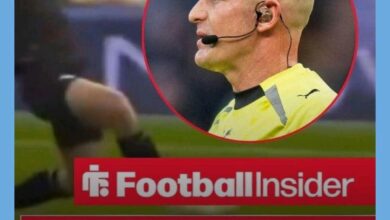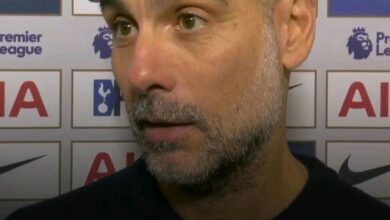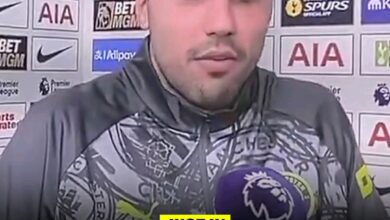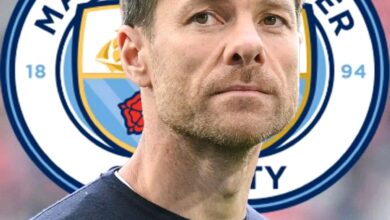Man City squad for Club World Cup takes shape amid wild Riyad Mahrez link
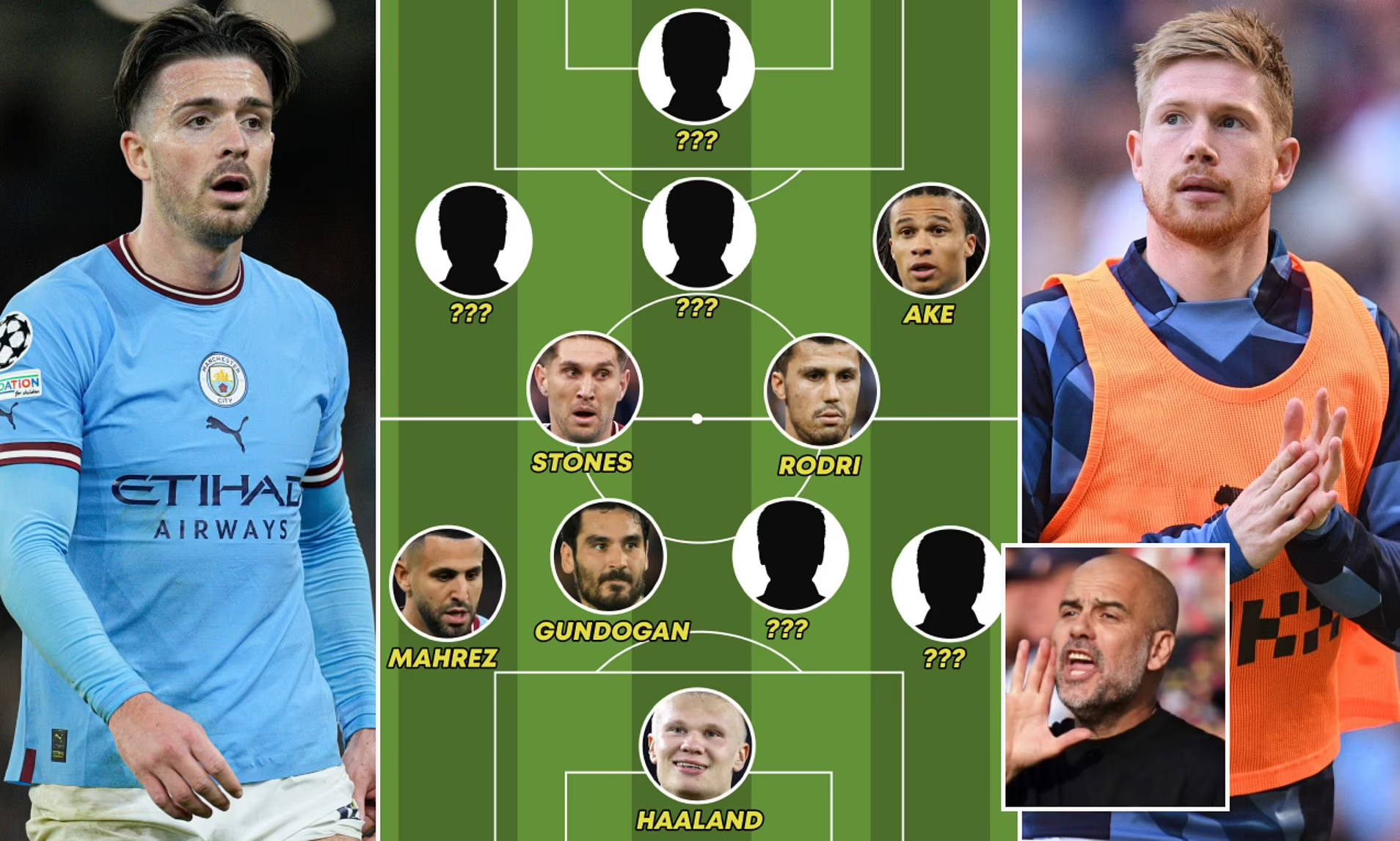
Fans of Riyad Mahrez’s exceptional close control, delicious pasta dishes, and that magical left foot will be disappointed to learn that the Algerian virtuoso will not be making a sensational return to Manchester City for the upcoming FIFA Club World Cup. Despite swirling rumors linking the former City star with a spectacular comeback from the Saudi Pro League for this prestigious summer tournament, sources close to the club have confirmed that such a reunion is not on the cards.
The speculation around Mahrez’s potential return exemplifies the peculiar atmosphere surrounding this revamped tournament, which has been shrouded in unpredictability ever since FIFA president Gianni Infantino made the unexpected journey to Miami to personally invite Lionel Messi’s Inter Miami – a decision that raised eyebrows across the footballing world due to its departure from traditional qualification criteria.
The unveiling of the tournament trophy, an ornate piece requiring a giant gold key to open it, performed in the presence of US President Donald Trump, only added to the sense that this iteration of the Club World Cup exists in its own unique reality. This atmosphere of uncertainty has allowed rumors like the Mahrez comeback to gain traction, despite having little foundation in fact.
“If all these outlandish scenarios can be true,” one City insider joked, “then perhaps the tournament ball will be made of cheese and Saudi Pro League stars will be raffled off to competing teams as part of some elaborate marketing stunt for the 2034 World Cup.” While said in jest, the comment reflects genuine confusion about what to expect from this reimagined competition.
The Balancing Act: Squad Selection and Tournament Priorities
As Manchester City prepares for the trip to the United States, Pep Guardiola faces a delicate balancing act. The financial reward for success in the Club World Cup is substantial, with the winning club set to receive a prize that dwarfs many domestic competitions. However, City’s prolonged involvement would significantly impact their preparation for the domestic campaign, potentially hampering their efforts to reclaim the Premier League title from Liverpool.
Throughout the season, Guardiola has offered contrasting perspectives on his approach to the tournament. At times, he’s suggested that he’ll prioritize rest for his key players, allowing extended downtime and supplementing the squad with academy prospects. This strategy would theoretically preserve his stars’ energy for the grueling Premier League campaign to follow.
“We must be intelligent with how we manage our resources,” Guardiola stated in a press conference last month. “The Club World Cup is important, yes, but we cannot sacrifice our domestic ambitions. We will need to find the right balance.”
Despite these comments suggesting a youth-focused approach, a closer examination of recent matchday squads paints a different picture. Even with a substantial injury list including key figures like John Stones, Nathan Ake, Oscar Bobb, Rodri, and Erling Haaland, Guardiola has still not found room in his 20-man selections for promising talents such as Vitor Reis, Abdukodir Khusanov, or the highly-rated Argentine youngster Claudio Echeverri.
This pattern suggests that while Guardiola may supplement his squad with some youth talents, the core group traveling to the United States will likely feature predominantly established first-team players. The returning injured players would immediately expand the available pool to numbers more typical of a pre-season tour, even before turning to the academy for additional reinforcements.
The Special Transfer Window: Opportunities and Challenges
A distinctive feature of this inaugural expanded Club World Cup is the implementation of a special transfer window designed specifically for the tournament. This unique arrangement allows clubs to complete transfers before the competition begins, providing an opportunity to strengthen squads for the tournament without committing to these players for the entirety of the following season.
For Manchester City, this window presents both opportunities and challenges. The most significant potential loss could be Kevin De Bruyne, with persistent rumors linking the Belgian maestro with a lucrative move to Saudi Arabia. De Bruyne’s departure would undoubtedly leave a creative void in City’s midfield, but the specialized transfer window could allow Guardiola to secure a replacement without waiting for the regular summer window.
Industry insiders suggest City have already laid groundwork for potential moves, with Bayer Leverkusen’s phenomenal talent Florian Wirtz and Nottingham Forest’s dynamic midfielder Morgan Gibbs-White believed to be high on Guardiola’s wishlist. The club’s financial muscle could feasibly secure both players if they wished to make a statement of intent ahead of the tournament, though one high-quality midfield addition seems more likely given City’s typically measured approach to the transfer market.
The club’s recruitment team is also believed to be exploring options in other positions, with defensive reinforcements a possibility given the injury problems that have plagued their backline this season. This specialized window offers City a rare opportunity to address squad deficiencies mid-season, potentially strengthening multiple areas before embarking on their Club World Cup campaign.
Tournament Format and City’s Path to Glory
The revamped FIFA Club World Cup represents a significant departure from its previous format. Rather than the short knockout tournament traditionally held in December, the new competition will feature 32 teams competing in a format similar to the FIFA World Cup, with group stages followed by knockout rounds.
As reigning UEFA Champions League winners, Manchester City qualified automatically and have been seeded for the group stage draw. They will face teams from different confederations, with the exact opponents to be determined in the upcoming draw ceremony in New York.
The expanded format means a potentially longer campaign for City, with a minimum of three group matches and up to four knockout games if they progress to the final. This extended schedule is precisely what concerns Guardiola, as it could see his players competing well into July before requiring a rest period ahead of the Premier League season.
“We might be playing competitive matches when other teams are still in the early stages of pre-season training,” noted City’s performance director. “It creates a unique challenge in terms of periodization and ensuring players reach optimal fitness at the right times.”
The tournament’s timing also affects City’s traditional pre-season plans, including lucrative tours of Asia or North America. The club’s commercial department has already been working on alternative strategies to fulfill sponsorship obligations while accommodating the Club World Cup schedule.
The Squad Depth Analysis: Position by Position
A closer examination of City’s potential Club World Cup squad reveals impressive depth across all positions, even accounting for possible departures and injuries.
Goalkeepers
Ederson remains the undisputed first choice between the posts, with Stefan Ortega providing reliable backup. The experienced Scott Carson is likely to travel as third choice, offering valuable dressing room presence alongside his occasional goalkeeping duties. Young prospect Mikki van Sas could also make the trip to gain valuable tournament experience.
Defenders
Despite occasional injury concerns, City’s defensive corps remains formidable. Ruben Dias continues to be the cornerstone of the backline, typically partnered with either John Stones or Manuel Akanji. The latter has demonstrated remarkable versatility, filling in across the defensive line when required.
Kyle Walker remains the first-choice right-back, though his minutes have been more carefully managed this season with Rico Lewis receiving increased playing time. On the opposite flank, Josko Gvardiol has made the left-back position his own, adapting admirably to Guardiola’s tactical demands despite naturally being a center-back.
Nathan Ake provides valuable cover across multiple positions, while Sergio Gomez offers additional depth at left-back. The potential inclusion of young center-back Vitor Reis would give Guardiola another option, though the Brazilian has yet to break into the first-team picture consistently.
Midfielders
The midfield represents both City’s greatest strength and their area of greatest uncertainty heading into the tournament. Rodri’s importance cannot be overstated, with the Spaniard’s control of tempo and positional intelligence forming the foundation of City’s play. His potential absence through injury would be a significant concern.
Mateo Kovacic has proven a shrewd acquisition, offering technical security and progressive passing from deep positions. Bernardo Silva’s incredible engine and tactical intelligence make him invaluable, capable of fulfilling multiple roles within Guardiola’s system.
The possible departure of Kevin De Bruyne would leave an experience gap, though Phil Foden has increasingly demonstrated his ability to influence games from central areas. The potential arrivals of Wirtz or Gibbs-White would add further creativity, while James McAtee has shown promise when given first-team opportunities.
Forwards
City’s attacking options remain fearsome, even with Oscar Bobb’s injury absence. Erling Haaland leads the line with his remarkable goalscoring prowess, though Julian Alvarez provides a different profile when rotation is required or tactical adjustments are needed.
Jeremy Doku has added a direct dribbling threat that was missing previously, while Jack Grealish offers control and creativity from wide positions. The emergence of Brazilian winger Savinho has given Guardiola another option, with his quick feet and acceleration causing problems for opposition defenses.
Guardiola’s Tactical Approach: Adapting to the Tournament Context
Guardiola’s tactical flexibility has been a hallmark of his tenure at Manchester City, and the unique context of the Club World Cup is likely to inspire further innovation. The compressed nature of the tournament, combined with the potential for matches against unfamiliar opponents from different continents, will test City’s adaptability.
In recent seasons, City have demonstrated an increased pragmatism in certain fixtures, willing to sacrifice some possession in favor of defensive solidity when the situation demands. This approach could be particularly valuable in knockout matches, where game management becomes paramount.
The possible absence of key personnel might necessitate tactical adjustments. Without De Bruyne’s range of passing, for example, City might focus more on sustained positional attacks rather than quick transitions. Similarly, if Rodri is unavailable, Guardiola might employ a double pivot to compensate for the loss of his defensive presence.
The varied playing styles City will encounter also presents a unique challenge. From the technical approach of South American sides to the physical intensity of certain African teams, Guardiola will need to prepare his squad for a diversity of tactical problems not typically faced in European competition.
Commercial and Global Brand Implications
Beyond the sporting aspects, the Club World Cup represents a significant commercial opportunity for Manchester City. The club’s global brand has grown exponentially under the ownership of the City Football Group, but penetration in certain markets – particularly North America – remains a focus area for commercial development.
The tournament’s location in the United States provides an ideal platform to strengthen City’s presence in this crucial market. The club’s marketing department has already begun planning fan engagement activities around the tournament, including open training sessions, meet-and-greet events with players, and community outreach programs.
The potential for matches against clubs from different confederations also offers exposure to new fan bases. A fixture against a popular South American side like Flamengo or River Plate, for instance, would introduce City to audiences who might primarily follow their domestic leagues rather than European competitions.
From a sponsorship perspective, the tournament provides valuable activation opportunities for City’s commercial partners. Several major sponsors have already indicated plans to leverage the club’s participation with targeted campaigns in the host cities.
Legacy Considerations and Historical Context
For a club as trophy-hungry as Manchester City under Guardiola’s leadership, the opportunity to add another prestigious title to their collection holds obvious appeal. While the revamped Club World Cup doesn’t yet carry the historical weight of competitions like the Champions League or Premier League, being crowned inaugural winners would secure City’s place in football history.
The tournament also offers a chance to measure City’s evolution against the global standard. Having conquered England and Europe repeatedly, demonstrating superiority over champions from other continents would further cement the legacy of this remarkable team.
For individual players, particularly those approaching the latter stages of their careers, the Club World Cup represents one of the few remaining unclaimed prizes. Veterans like Walker and Bernardo Silva may view this tournament as an opportunity to complete their trophy collections before time potentially runs out on their City careers.
Preparation Challenges and Logistical Considerations
The unique timing and location of the Club World Cup creates several logistical challenges for City’s performance department. Travel fatigue, climate adaptation, and maintaining optimal physical condition throughout the tournament will be critical factors in determining success.
The performance team has already been conducting extensive research on the host cities, analyzing factors such as humidity levels, average temperatures, and altitude to develop tailored preparation strategies. Players will be equipped with personalized recovery protocols, with particular attention paid to hydration and sleep management during the tournament.
Training loads will be carefully monitored, with sessions likely to be shorter but more intense than during a typical pre-season period. The sports science department has been collecting data throughout the season to identify individual fatigue markers, allowing for customized workload management during the tournament.
Nutrition will also play a crucial role, with the club’s chefs traveling with the team to ensure appropriate meal preparation. Specific emphasis will be placed on anti-inflammatory foods and supplements to aid recovery between matches, particularly important given the condensed schedule.
Conclusion: Balancing Ambition with Pragmatism
As Manchester City prepares for this novel challenge, the overriding sense is of a club attempting to strike the perfect balance between competing ambitions. The desire to add another prestigious trophy to their burgeoning cabinet must be weighed against the potential impact on their domestic campaign.
Guardiola’s track record suggests he will approach the tournament with characteristic thoroughness, leaving nothing to chance in terms of preparation. However, his comments indicating a potential focus on rest for key players reveal an awareness of the bigger picture.
The squad that ultimately travels to the United States is likely to feature a blend of established stars and emerging talents, giving City enough quality to compete seriously while avoiding overexertion of their most crucial personnel. The special transfer window provides an additional opportunity to fine-tune the group, potentially offsetting any significant departures.
While fanciful rumors of Mahrez’s return have been dismissed, the reality of City’s Club World Cup squad remains impressive enough. With depth across all positions, tactical flexibility, and the guiding hand of one of football’s greatest modern coaches, they will undoubtedly enter the tournament among the favorites, regardless of which specific players make the final cut.
As one club official put it: “We’re going there to win, as we do with every competition, but we’re going there smart. The Club World Cup is important, but it’s one part of a bigger picture. Pep understands that better than anyone.”
For more Manchester City coverage and analysis, join our free WhatsApp group, subscribe to our newsletter service, or listen to our Talking City podcast available on all major platforms including Spotify, Apple Podcasts, and YouTube.
